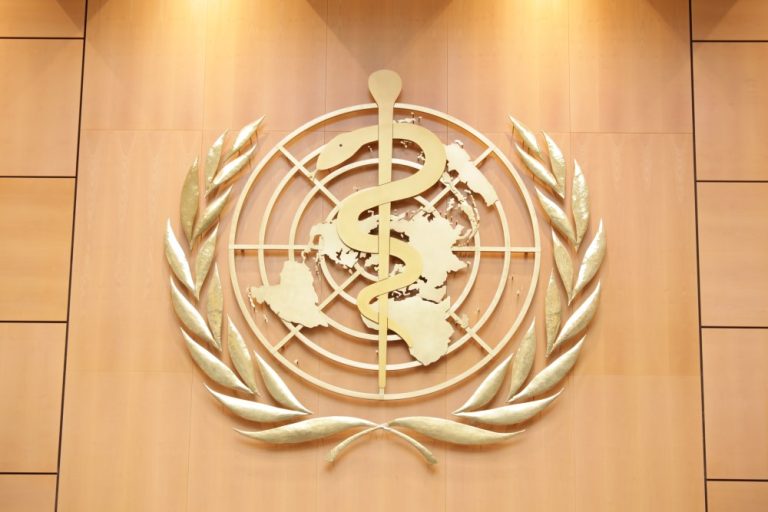The leadership of the World Health Organization (WHO) has signaled its intention to renew a global strategy advising governments across the world on nursing and midwifery.
Earlier this month, the 156th meeting of the WHO’s executive board took place. At the meeting, topics including universal health coverage, health digitisation and international nurse recruitment were discussed by delegates from WHO member states.
“It’s been really pleasing to hear member states talk about the positive contributions nurses are making in their countries”
Howard Catton
Among the resolutions made at the conference was one to extend a series of international programmes for the development of healthcare, including the WHO’s Global Strategic Directions for Nursing and Midwifery 2021-2025.
This strategy is divided into four policy priorities: education, jobs, leadership and service delivery.
For each priority, international governments are given recommendations on how to improve the provision of nursing and midwifery care and how to bolster the workforce.
Policy aims from the last half-decade have included increasing the proportion of men in nursing across the world, reducing midwifery shortages, increasing the proportion of nurses who are university graduates and implementing advanced practice nursing roles.
The strategy is due to expire in December of this year. Members of WHO’s executive board decided, at the meeting which concluded on 11 February, to accept a recommendation to extend it to 2030 and update its priorities.
A draft report set out that some of the new priorities for 2026-2030 would include “leveraging” technology to help train more nurses, scaling up the domestic production of nurses and midwives and reduce inequitable international recruitment agreements that have often only benefitted wealthy receiver countries such as the UK.
At the meeting, various countries discussed the importance of extending the strategy, as well as others on public health and digitisation.
The WHO delegate for Barbados described the strategy as “essential” and “crucial” for achieving universal health coverage, one of the United Nations (UN)’s sustainable development goals.
Lebanon’s delegate told the meeting that advancements in technology meant that updates to the strategies were necessary and backed the extension.
The delegate said: “The shortage in [the] nursing workforce and inequitable distribution of midwifery personnel, especially in low- and middle-income countries, is a threat to [universal health coverage] that must be eliminated.”
In several delegates’ statements, the importance of nurses and midwives to the functioning of health systems was mentioned.
Speaking after the meeting, International Council of Nurses (ICN) chief executive Howard Catton said it was “pleasing” to hear the recognition the professions were getting.
However, he said the recognition must “spark real change”.
There were no objections to extending the strategy to 2030.
The WHO executive board decision means the extension will be presented to the 78th WHO Assembly in May, where a final decision will be made.
The updated Global Strategic Directions for Nursing and Midwifery document is due to be informed by the next State of the World’s Nursing report, which is due to be published in May.
Meanwhile, other resolutions were put forward during the WHO board meeting on matters relating to nursing.
One, which also passed without opposition, will see the board recommend the next WHO Assembly facilitates meetings with member states about a review and updating of the organisation’s Global Code of Practice on the International Recruitment of Health Personnel.
The current code of practice recommends a ban on the active recruitment of healthcare staff, such as nurses and midwives, from countries with the greatest workforce shortages.
This list of countries is sometimes referred to as the “red list” and includes Nigeria, Bangladesh and Afghanistan.
Where international recruitment does take place, the code of practice recommends bi-lateral agreements that allow sender countries, which are typically less wealthy than receiver countries, to benefit from the emigration of healthcare workers.
At the WHO meeting, the delegate for Bangladesh welcomed the focus on creating more equitable international recruitment and said the code was “useful” as a guidance tool, despite its voluntary nature.

Howard Catton
Following the executive board session, Mr Catton welcomed the “important discussions” on topics such as universal health coverage, climate change and the nursing and midwifery workforce.
“It’s been really pleasing to hear member states talk about the positive contributions nurses are making in their countries to expanding healthcare, to improving access, to addressing non-communicable diseases and agreeing on the need to do more to support nurses and healthcare workers,” said Mr Catton.
He added that he and other international nursing organisations “absolutely have to” keep lobbying for nursing to be prioritised by the WHO.
A common theme across the board’s discussions was the recently announced intention of the US to withdraw from WHO.
The move, put forward via an executive order of president Donald Trump, has jeopardised funding for some initiatives run by WHO already.
Mr Catton said the impact of this was discussed across the board session, both in and out of formal meetings.
“In the corridors, I’ve heard the discussions about the US decision to withdraw funding [from WHO] described as disastrous, as catastrophic,” he said.
“Let’s not forget that there are many hundreds of nurses in countries delivering programmes for people with HIV, AIDS, public health, vaccinations, which have just stopped because the money has stopped.
“Our thoughts are very much with those colleagues and our concern is that it will make it even more difficult to reach the [UN] sustainable development of goals universal health coverage.”

